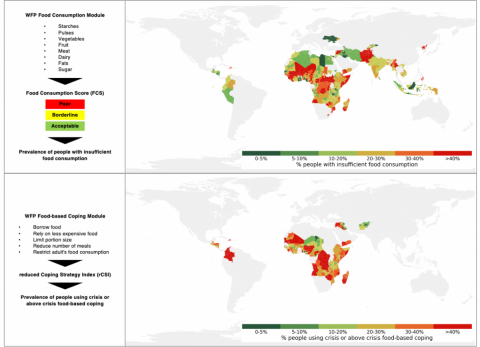
A new paper out by Elisa Omodei Nature Food: https://www.nature.com/articles/s43016-022-00587-8.
ABSTRACT / Estimating how many people are food insecure and where they are is of fundamental importance for governments and humanitarian organizations to make informed and timely decisions on relevant policies and programmes. In this study, we propose a machine learning approach to predict the prevalence of people with insufficient food consumption and of people using crisis or above-crisis food-based coping when primary data are not available. Making use of a unique global dataset, the proposed models can explain up to 81% of the variation in insufficient food consumption and up to 73% of the variation in crisis or above food-based coping levels. We also show that the proposed models can nowcast the food security situation in near real time and propose a method to identify which variables are driving the changes observed in predicted trends—which is key to make predictions serviceable to decision-makers.